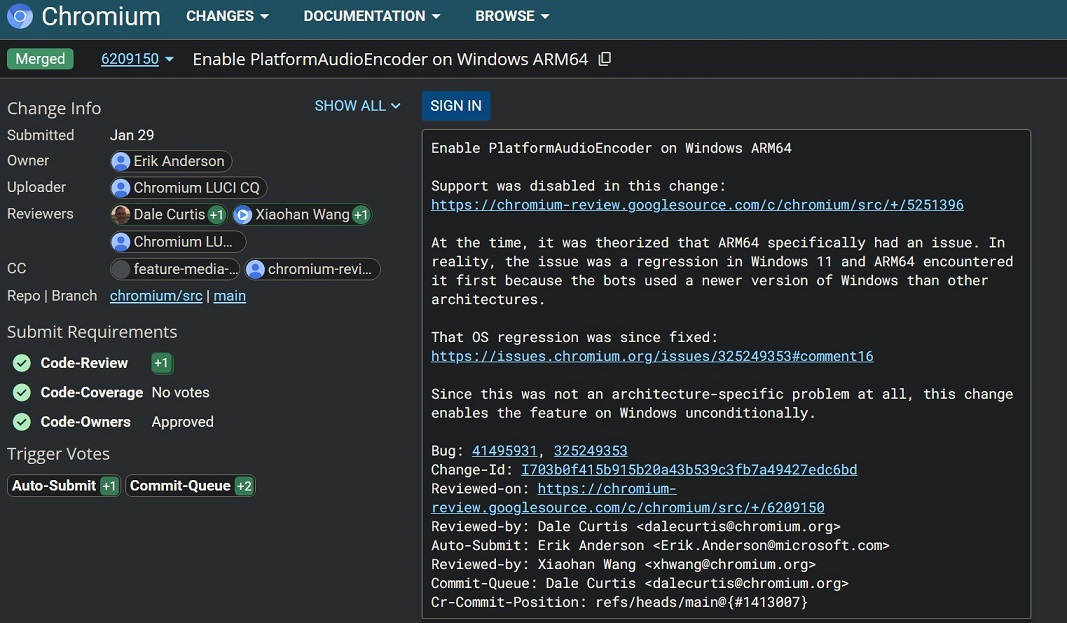Chrome restored fast Advanced Audio Coding (AAC) encoding on Windows 11 on ARM devices, such as the Snapdragon X Elite and X Plus, after Microsoft fixed a bug in the OS and worked with Google to make sure Chrome is in line with it. Advanced Audio Coding (AAC) allows Chrome to encode audio faster on Windows 11, including AMR-based PCs.
I’ve been tracking the problem for over a year now, well before Microsoft shipped the PC with Snapdragon processors. For those unaware, this change is related to AAC (Advanced Audio Codec), which is an audio compression format that gives us sound at smaller sizes without compromising the quality.
Hardware-based AAC support benefits everyone, including those who record audio using Chrome or watch content on YouTube, Spotify, and other services.
According to Chromium commit and bug posts seen by Windows Latest, Chromium has a hardware-accelerated AAC encoder called the PlatformAudioEncoder, which offloads AAC encoding to hardware. This is done to make sure performance is better without compromising the battery/power consumption.
Last year, in January 2024, Google shipped a change to turn off hardware AAC encoding on Windows ARM64 due to test failures.
At that point, Google believed that it was an issue due to the ARM architecture.
As a result, Google was hoping for things to get better once ARM-based companies try to help with the fixes, but it turned out that the bug was linked to Windows 11 and required Microsoft’s involvement.
After Microsoft looked into the problem, the company spotted that the test failures were not due to ARM64 but rather a bug in Windows 11. According to code commits and comments seen by Windows Latest, the issue was linked to changes in Windows 11’s Media Foundation.
According to Microsoft’s documentation, Media Foundation in Windows 11 is responsible for audio/video processing.
When Microsoft’s audio team at Windows got involved, it collected the traces, and developed a fix. Specifically, the fix was introduced in Windows 11 22H2 and 23H2 builds 22621.4112 and 22631.4112, respectively.
On Jan 29, 2025, Google finished working with Microsoft on the audio project, and developers re-enabled the PlatformAudioEncoder for Windows ARM64.
“Enable PlatformAudioEncoder on Windows ARM64,” Erik Anderson developed at Microsoft noted in a Chromium commit.
“At the time, it was theorized that ARM64 specifically had an issue. In reality, the issue was a regression in Windows 11, and ARM64 encountered it first because the bots used a newer version of Windows than other architectures,” he added while describing the code commit, and it is in line with what we’ve observed in our research.
In simple words, what this change means is hardware-accelerated audio encoding is now available in Chrome for Windows 11 on ARM, such as Snapdragon.

Chrome can now encode audio faster without consuming excessive CPU of Snapdragon PCs, and also saves battery because it is now correctly offloading audio encoding to Qualcomm hardware.
This is another big win for Snapdragon PCs, which are slowly gaining traction in the computing market.
The post Chrome gets faster audio encoding on Windows 11 ARM, thanks to Microsoft appeared first on Windows Latest
